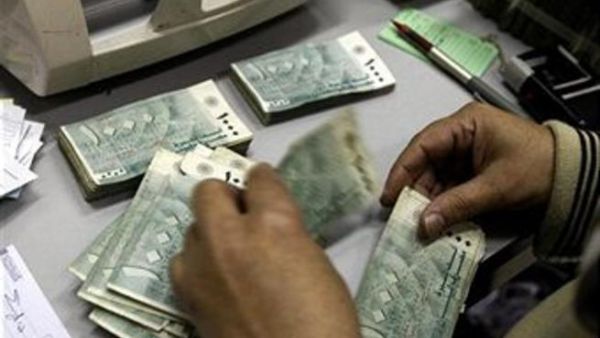Lebanon's banking sector will abide by international sanctions against unrest-swept Syria, central bank governor Riad Salameh said on Tuesday. "Lebanese banks both at home and abroad... will not take any action, especially as concerns Syria, that could expose any of our banking partners or put them in a position whereby they have breached regulations in their countries," said Salameh.
Lebanon was fully committed to the implementation of international regulations on banking transparency, he told a conference in Beirut organized by the International Finance Corporation. "The central bank will seriously investigate all complaints (of breaches) and will not hesitate in taking any necessary measures," he added.
Lebanon has come under international pressure to abide by international sanctions on neighboring Syria, which include freezing government assets and suspending cooperation with Syria's central bank and some other banks.
Salameh has said Syria has no funds deposited in Lebanon's central bank and Lebanese banking officials say they have adopted strict measures to ensure compliance with the sanctions. These measures include strict control over the transactions of Syrian clients and close monitoring of Syrians who wish to open new accounts.
The European Union on Monday blacklisted five banks in Syria as part of efforts to tighten sanctions on the regime. Salameh attributed a decline in local economic growth to the repercussions of "rumors" linking Lebanon's banking sector to Syria. "Growth in 2011 dropped due primarily to... rumors targeting its banking sector in addition to revolutions and tensions across the region."
The United States, which lists Hezbollah as a terrorist group, last year filed a lawsuit against the Lebanese Canadian Bank, accusing it of laundering hundreds of millions of dollars in drug proceeds from an alleged cocaine trafficker with ties to the Shiite militant group.
Lebanon's government, which is dominated by Iranian-backed Hezbollah, has sidestepped taking a firm stand on the Syria crisis in what observers say is a bid to avoid potential sanctions or a spillover of the violence.
The United Nations estimates more than 5,400 people have been killed in Syria since March as the regime of President Bashar al-Assad cracks down on a popular revolt.
Salameh also shed light on the broad activities of the Lebanese banks, especially in field of lending to both the private and public sectors. "Our monetary policy has enabled the Lebanese pound to remain stable and has bolstered the confidence in the Lebanese banking sector. All these factors also caused the interest rates to fall while assets continued to grow which ultimately induced lending to small and medium size businesses in Lebanon." Salameh indicated that banking lending rose by 14 percent in 2011 compared to 23 percent in 2010, adding that SMEs received substantial share from these loans. Salameh noticed that the Lebanese pound has regained the confidence and trust of investors.
The governor reiterated that the Central Bank will maintain its monetary policy because this measure allowed the Lebanese pound to remain stable. "This policy is important to keep inflation at bay and to weather the effects of wage increase on the prices of commodities." He assured that the Lebanese banks continue to draw deposits and liquidity. Salameh indicated that loans to the private sector have exceeded the loans to the public sector. The private sector received $40 billion of loans compared to $29 billion to the public sector AFP.








